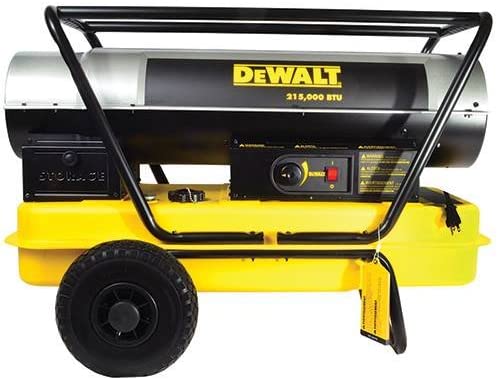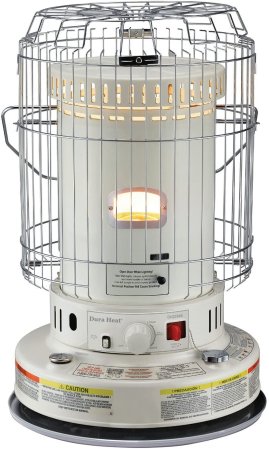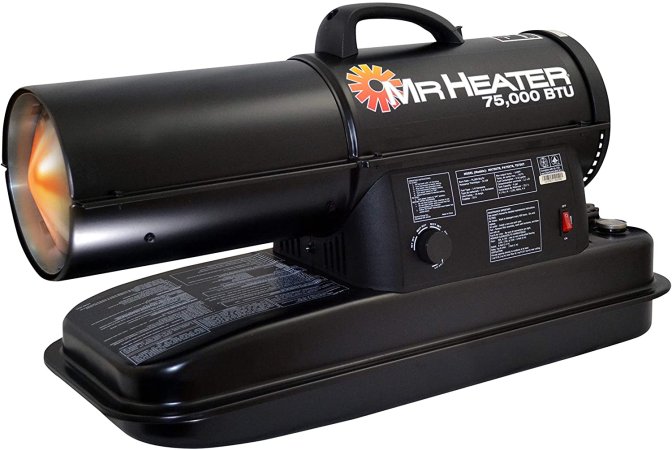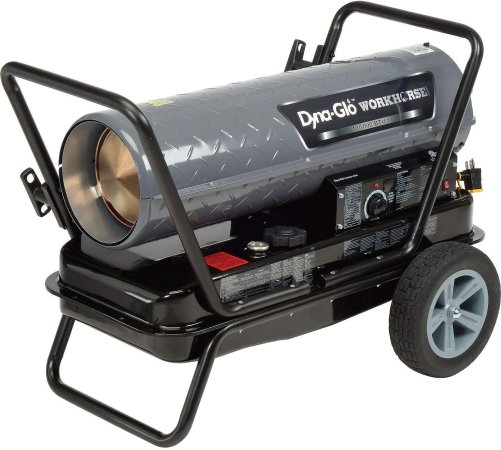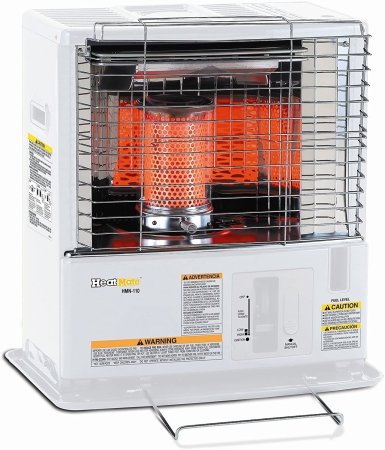

We may earn revenue from the products available on this page and participate in affiliate programs.
Temperatures drop, but your zeal for home improvement projects doesn’t. Good on you. Garages, workshops, and job sites aren’t always the most forgiving places to be, and bundling up like the little brother in A Christmas Story can only do so much. You might be better off adding a heater to your repertoire and letting a can of kerosene take the frost out of the air. Compared to electric space heaters, kerosene heaters produce significantly more heat. They’re also surprisingly efficient. Just a gallon of kerosene can keep you warm for hours. There are a few considerations to keep in mind, like high temperatures and fumes that require adequate ventilation, but those are easy to account for.
When you’re ready to take your winter projects to the next level, pick up a can of fuel and one of these kerosene heaters. You’ll be up and running in no time.
DeWalt DXH215HD
Dura Heat kerosene heater
Mr. Heater MH75KTR
Dyna-Glo Workhorse
Sengoku HeatMate
Related: 5 heat lamps that can turn your frigid patio into a cozy oasis
Types of kerosene heaters
Kerosene heaters come in several shapes and sizes, and there’s quite a bit of variation in output. If you just need to heat a single room, compact options can produce a usable amount of heat at a reasonable price. Professional-grade alternatives can successfully heat more than 2,000 square feet. All are designed to run on kerosene–a safe, efficient, clean fuel source that’s readily available at any hardware store. Some kerosene heaters will even accept alternative fuels in a pinch. It’s always important to refill the attached fuel tanks in a safe manner since heating elements get very hot. Some kerosene heaters are meant to be stationary, while others can moved from place to place without a problem. Many can be quite loud (especially the higher-output options), so consider sound levels when you make your decision.
Key features of kerosene heaters
- Output: Kerosene heaters typically outperform electric heaters in terms of heat output by a significant margin, but they aren’t all the same. Compact in-home units can produce a modest 10,000 BTU to warm small indoor areas. Heaters built for construction sites and outdoor areas can produce as many as 80,000 BTU.
- Size: Kerosene heaters are portable by design. Small options can easily be carried from room to room. Larger ones can be quite bulky; but, since they’re still meant to be portable, they have handles to make them easier to move.
- Fuel source: Aren’t all kerosene heaters powered by kerosene? Yes, but some can also run on other fuel sources temporarily without issue. If you think you might need to be flexible, look for a heater that can do the same.
- Intended use: It’s important to match the right kerosene heater with your reason for buying one. A powerful heater can easily overpower a room with heat and noise, and a heater that’s too small can leave your teeth chattering.
Benefits of kerosene heaters
Kerosene heaters’ bragging list is short and to the point: they’re powerful and portable. Liquid fuel produces far more heat than electricity, and you won’t necessarily be stuck within a radius of the nearest outlet. Portability makes these heaters a great companion for unfinished buildings and cold outdoor activities. Kerosene is also inexpensive and efficient, so you can benefit from clean-burning fuel for hours for less money than you’d spend on an extra layer of clothes. None of them are what we’d consider inexpensive, but when you can choose to stop seeing your breath at the push of a button, the price is well worth it.
Kerosene heater pricing
Even though the fuel is inexpensive, be prepared to shell out some money on the front end of switching to kerosene heat. Quality compact options are more than $100. That might sound steep compared to electric alternatives, but remember there is a noticeable difference in heat output. The large kerosene heaters you see on professional job sites cost more than $200, but there are some circumstances when you need that kind of power. The good news is that they’re fairly simple, so you shouldn’t have to worry about things going wrong. Just be sure to read the safety precautions that come with your heater thoroughly.
Related: Kick your feet up with these all-star Adirondack chairs
